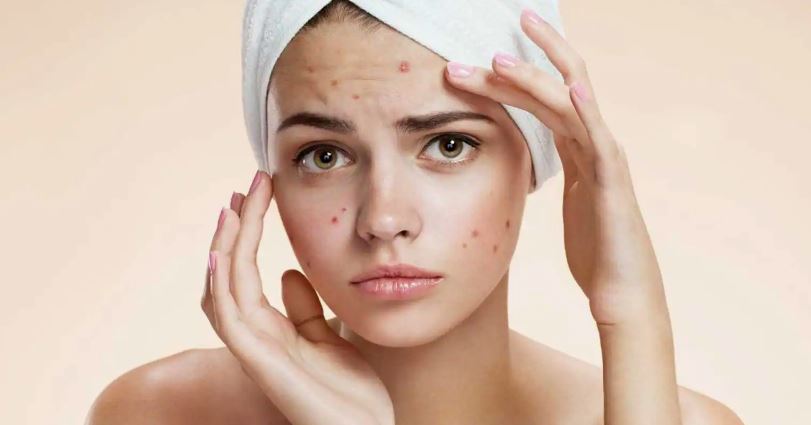ICD 10 Codes for Acne: Acne is one of the most common skin conditions in the United States, affecting more than 50 million individuals annually. On the face, forehead, chest, shoulders, and upper back, breakouts most frequently take the shape of whiteheads, blackheads, painful nodules, cysts, and pimples. If treatment is not received, the disease may cause serious adverse effects including hyperpigmentation, dark spots, and scars from acne. Prescription medication is used in combination with other therapies to treat acne. However, the most effective treatment methods depend on the kind and severity of acne. Dermatologists must use the correct ICD 10 codes for acne when diagnosing different skin conditions in order to report the diagnosis accurately.
1) Types and Symptoms of Acne and Their Causes
While acne can affect individuals of any age, teenagers are the ones who experience it most frequently. Eighty percent of individuals between the ages of eleven and thirty are said to have mild acne. When the condition initially appears all over young adulthood, males are more likely to have it. When it does last till adulthood, women are the ones who are most affected. Acne can be caused by various circumstances. One of the primary causes is an excessive or high production of oil (sebum) in the pore.
Some associated factors include the accumulation of dead skin cells in the pore, the development of bacteria in the pore, inflammatory conditions, hormonal factors or fluctuations, the use of oily makeup, and the use of specific drugs (those are rich in carbohydrates and/or testosterone), eating specific foods, and experiencing emotional stress. Numerous lesion kinds, or pimples, are caused by acne and differ in size, color, and degree of pain. The signs of acne may differ according to the nature and extent of the situation, but they consist of blackheads (open clogged pores), blisters (pimples), and cystic tumors (painful, pus-filled lumps under the skin), big, solid enough painful masses under the skin (nodules), and whiteheads (closed clogged pores).
2) Understanding ICD 10 Codes for Acne Diagnosis and Treatment
The patient’s age, as well as the kind and degree of acne, may affect the treatment options for this problem. OTC drugs, which come in the form of gels, soaps, pads, creams, and lotions, can be used topically to treat mild cases of acne. However, oral antibiotics or contraceptives, topical antimicrobials, corticosteroid injections, and hormone therapy (mostly used in women) can all be used to treat mild to moderate acne. In order to treat and repair scarring, further treatments such as laser and light therapy, superficial chemical peels, and surgical procedures may be indicated for those with severe acne who do not react to topical or oral drugs.
Acne and other inflammatory skin disorders might have complicated medical codes. In order to record different types of acne, healthcare providers must be aware of the extremely specific ICD-10 codes for acne. For acne vulgaris, the ICD-10 code L70.0 offers crucial details like the precise diagnosis. The severity of the ailment, and any related variations or consequences. Acne vulgaris is a prevalent skin ailment that can be better understood and treated thanks to the consistent reporting and analysis of cases made possible by this code. Healthcare practices may guarantee accurate and prompt medical billing and claim filing by contracting out these duties to a respectable dermatology medical billing and coding firm with AAPC-certified coding specialists.
3) ICD 10 codes for Acne diagnosis includes
- L70 Acne.
- L70.0 vulgaris acne.
- L70.1 Conglobata acne
- L70.2 Varioliformis Acne
- L70.3 Tropical acne
- L70.4 Childhood acne
- L70.5 Excoriated skin acne.
- L70.8 Additional acne.
- L70.9 Unspecified Acne.
Also Read:
4) When to Get Professional help
If your acne vulgaris is irritating, severe, or persistent, you should see a doctor. Moderate occurrences of acne can typically be managed at home. A dermatologist may provide guidance on how to effectively control acne. As well as prescribe the appropriate medications and design a personalized treatment plan. Quick action can boost self-esteem and lessen the chance of scarring.
5) Importance of ICD 10 codes in healthcare
ICD-10 codes are essential to the healthcare industry because they make it easier for insurers. Healthcare providers, and other stakeholders to communicate accurately and effectively. These codes offer a standard language that guarantees uniform diagnosis coding and documentation, enabling correct payment and better patient care.
6) How Are ICD-10 Codes Assigned?
Healthcare professionals assign ICD-10 codes to patients based on their signs, symptoms, lab results, and medical history. For the right code to be assigned, a complete assessment and diagnosis are necessary. A condition’s ICD-10 code, such as acne vulgaris, can help expedite healthcare procedures and give important diagnostic information.
Conclusion
Recognizing the ICD 10 codes pertaining to acne vulgaris is vital for a precise diagnosis, suitable management, and enhanced results. Along with the above-mentioned treatment methods, implementing specific lifestyle alterations or habits may help control or minimize the impact of the skin problem over time. In order to correctly report the diagnosis of inflammatory skin conditions like acne, doctors. Especially dermatologists, can rely on the experience of a certified medical billing company such as The Medicator’s.









